INSERT INTO CCP_D2
(CONT_MAS_SID,
COMP_M_SID,
ITM_M_SID)
SELECT DISTINCT CM.CONT_MAS_SID,
CMP_MAS.COMP_M_SID,
IM.ITM_M_SID
FROM CONT_MAS CM
INNER JOIN CFP_C CCT
ON CM.CONT_MAS_SID = CCT.CONT_MAS_SID
AND CM.IN_STATUS <> 'D'
AND CCT.IN_STATUS <> 'D'
INNER JOIN CFP_C_DET CCD
ON CCT.CFP_C_SID = CCD.CFP_C_SID
INNER JOIN COMP_M CMP_MAS
ON CMP_MAS.COMP_M_SID = CCD.COMP_M_SID
AND CMP_MAS.IN_STATUS <> 'D'
INNER JOIN IFP_C IFP_CONT
ON IFP_CONT.CFP_C_SID = CCT.CFP_C_SID
AND IFP_CONT.IN_STATUS <> 'D'
AND CM.CONT_MAS_SID = IFP_CONT.CONT_MAS_SID
INNER JOIN IFP_C_DET ICD
ON IFP_CONT.IFP_C_SID = ICD.IFP_C_SID
INNER JOIN ITM_M IM
ON IM.ITM_M_SID = ICD.ITM_M_SID
AND IM.IN_STATUS <> 'D'
WHERE NOT EXISTS (SELECT 1
FROM CCP_D CD
WHERE CD.CONT_MAS_SID = CM.CONT_MAS_SID
AND CD.COMP_M_SID = CMP_MAS.COMP_M_SID
AND CD.ITM_M_SID = IM.ITM_M_SID)
--Number of records returned= 209519554

I have an sql that returns nearly 20 Million records. I want to insert the result in to a table. It is working fine with less number of records but when the number of records reach million then it takes around 1 hr 30 mins to complete even though I have proper indexes for all joining columns.
I tried the following things
- Splitted to mutiple batch insert using while loop but not working in this case.
- Created all recommended indexes but performance is not improved as expected.
Note: I don't prefer partition since i'm using sql server standard edition.
Could you please suggest any way to improve the performance of this query.